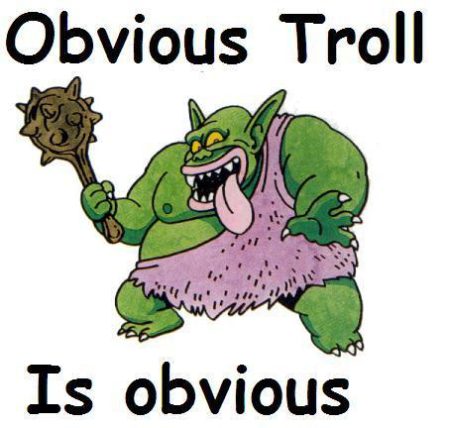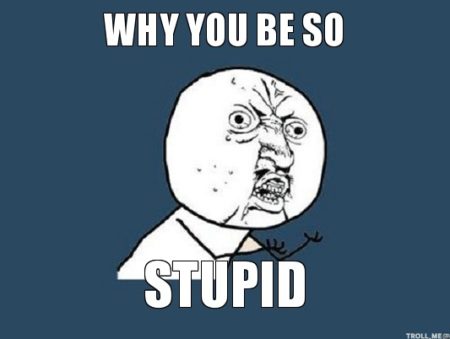Hays has replied to my previous post. As usual, I omit most of his abuse and ranting, and try to find some meat. There is a scrap or two in the sauce, once you thoroughly filter it. About purely philosophical arguments from theism to Trinity, I said: “By far most [trinitarians] have never so much as heard of them.”
Well, I don’t know about that. For instance, Bruce Metzger deploys those arguments in his classic 1953 article…
I stand by the comment. Just poll most of the (officially) trinitarian Christians you know.
I said,
And among trinitarians with some philosophical education, enough to understand how such arguments are supposed to work, the wiser among them see how tenuous they are.

Yet he admits that Swinburne and Davis mount arguments like this. He’s saying they lack wisdom? Davis teaches at Claremont, where Dale studied. Seems likely that Dale was a student of Davis. Does he think Davis is a hack?
Pretty uncharitable reading there! Both Swinburne and Davis are good philosophers, and they know that such arguments are tenuous – in the sense of speculative and not hard to dispute. They’ve been famously critiqued by another good philosopher, Brian Leftow, in his 1999 “Anti-Social Trinitarianism.” And of course by yours truly. All three are good philosophers, good Christians, and good men, and yes, Davis was my teacher, and has a been a true friend since. The others are friendly colleagues whom I respect and admire.
[Dale:] A very proper and reasonable skepticsm kicks in. In my view, which is also the view of many trinitarian philosophers and theologians, we should think that whether any Trinity theory is viable should depend on whether or not it best explains scripture, and not on any argument like this.
Dale talks out of both sides of his mouth. He explicitly attacks the Trinity on philosophical grounds, alleging that it violates the indiscernibility of identicals. He preemptively disallows Biblical testimony to the Trinity on philosophical grounds.
Steve seems not to understand my work, so typically, he goes for the personal attack. Basically, whenever he says I’m lying, two-faced, or stupid – that’s because he doesn’t get it. (Of course, many a more patient and sympathetic readers does.)
For the umpteenth time, there is no one Trinity theory; and so, it would make so sense for me to try to somehow rule out “the Trinity” on philosophical grounds. Some Trinity theories have indiscernibility of identicals problems, while others don’t. Steve think that his theory does, which is probably true, and so he calls his own theory here “the Trinity,” is if this were simply what the tradition says. But again, the traditions gives only formulas and vague ideas which a person then must make sense of as best he can. See chapters 6 and 7 in my book about the diversity of views here.
[Dale:] Stage 1: Show how it is impossible for there to be a unipersonal god. In other words, any god must be multi-personal. (Sometimes this is expressed clumsily, that there can’t be “a unitarian god.”)…Thus, for Stage 1, you must derive a contradiction (or some evident impossibility) from the concept of unipersonal god, a god who is a single, great self.
 My argument didn’t aim that high. Try again.
My argument didn’t aim that high. Try again. That’s what Davis and Swinburne and Morris are trying to do. Perhaps Steve is just none too clear about what must be done. They’re trying to show how there can’t be a unipersonal god, so that theism implies the falsity of unitarian theism. Those arguments are what I’ve been critiquing in that paper and posts that he linked.
Perhaps Steve imagines that “undercutting” or “undermining” unitarianism just alleging that it has some problem, something that strikes Steve as a little funny? Well, that’s not too interesting a game. But yeah, it’s harder to lose at it! If he just prefers not to engage – that’s up to him.
When he [John] says “God is love,” I think that’s synonymous with “God is loving”… Now, it may be that John intends something deeper. That God is the ultimate source or exemplar of love. Be that as it may, I take “God is love” to mean love is a divine attribute.
Right. As I said,
So then, I agree that “God is love.” At most, this means that God is essentially, paradigmatically, and maximally loving. Let’s grant all that, leaving aside sober exegesis for the sake of argument. But this doesn’t imply that he must always actually love another, any more than his being merciful entails that he’s having mercy on another.
What about never loving another? Would he still be loving?

Conceivably, yes. Just as a person might be forgiving and merciful, and yet never actually have the opportunity to actualize those tendencies or character traits. And so God can be perfectly loving, and yet be free to never create, to be forever alone. But of course, never lonely. All of this seems as possible as can be. Can’t deflate it with just a few rhetorical questions.
[Steve] That, however, raises another issue. If creatures are all God has to love, then there’s a lack of parity between the lover and the beloved. A unitarian god relates to humans the way a boy related to his pet lizard.
[Dale] Well, that’s a wild non sequitur! For the Jew or Christian, a “unitarian god” relates to humans like Yahweh in the OT relates to Abraham, Moses, David, Elijah, and Isaiah, and how the Father of the NT relates to Jesus, Paul, and John. Hard to see how Hays thinks it follows that the heavenly Father of Jesus’s teaching must instead be like a third grader with a gecko!
Is Dale really that dim? The metaphysical distance between God and man is infinitely greater than the metaphysical distance between one creature (a boy) and another creature (his pet lizard). That’s the point of the comparison.
This metaphor of “metaphysical distance” seems to be fogging Hays’s vision. The God of the Bible is supposed to be incalculably, infinitely “above” us, yet he speaks to men, reasons with them, and enters covenants with them. No, not at all like the boy and his lizard, despite the “greater distance.” There is a kind of parity still there, in the God-humans case, at least, enough for a kind of friendship that far surpasses what a pet owner has. That is why the scriptural king-subjects and husband-wife metaphors are appropriate for the God-creatures relation.
But let’s not lose where we are in the argument. Suppose that divine-person to divine-person love would be qualitatively better than divine-person-human love. But, why must a divine person enjoy that better kind of love? Because he’s “perfectly loving.” That’s a clear non sequitur, though. One can be perfectly loving without actually loving another. To have the perfectly loving character trait does not imply engaging in the best kind of love. So, Hays’s argument isn’t getting anywhere. As I said before,
What he’s not grasping is that “love” as a divine attribute need not be an action; it is plausibly a character trait, just as with God’s being merciful, or his being forgiving, kind, or generous.
Does Dale just lack reading comprehension? I addressed that distinction in the OP. Why does he repeat objections that I already dealt with, as if nothing was said by way of reply?
Hays has this weird habit giving a wholly unconvincing argument, and then when later you’re still not convinced, he’ll shriek that you’re just not paying attention, ’cause clearly he’s already creamed you many times. This is not a good habit for a would-be apologist! (Hays can be helpful in this regard.)
[Dale] There is no hold, seemingly, that the action of loving can get on perfect being reasoning. At least, this has only ever been asserted; it has never been shown that an absolutely perfect being must be loving another.
 But that wasn’t my argument. I didn’t say that to be morally perfect, God must be loving. That wasn’t a premise of my argument. I happen to think that’s true, but that’s a different argument. Rather, my argument, at that stage of the argument, was based on the nature of love as a relation. Why does Dale find it so hard to follow the actual argument?
But that wasn’t my argument. I didn’t say that to be morally perfect, God must be loving. That wasn’t a premise of my argument. I happen to think that’s true, but that’s a different argument. Rather, my argument, at that stage of the argument, was based on the nature of love as a relation. Why does Dale find it so hard to follow the actual argument? Riiiight. It’s clearly me who’s getting confused. Anyhoo, just from love being a relation, nothing interesting follows, as the conversation has already shown. You have to also employ a premise that a divine person must be enjoying the best kind of love (which isn’t self-love, which seems like a reflexive relation). I assume you try to justify that with perfect being reasoning. But it’s Hays’s argument, such as it is. He might try out some other justification. I’m listening.
[Steve] …I’m pointing out that dispositions or character traits are properties of persons. So it’s inadequate for Dale to terminate with love as a character trait, for that’s not where the explanation ends. There’s something more ultimate than character traits, and that’s the personal property-bearer of personal properties like love.
This is a truism, that only persons/selves can stand in relationships of interpersonal love.
[Steve] why would God have an intrinsic capacity for something merely contingent? For something that God can do without?[Dale] Because God is essentially absolutely perfect, and this entails the ability to enter into I-Thou relationships. That seems like a pretty good answer, right?
Is Dale speaking for himself or attempting to speak for me?
Himself.
Once again, my argument wasn’t predicated on perfect being theology. Rather, it involved a distinction between necessity and contingency.
If Dale is speaking for himself, why would God’s essential perfection entail the ability to enter into I-Thou relationships?
Yes, it does entail that.
On the one hand, he denies that God has to make creatures to provide I-Thou relationships. On the other hand, he regards divine self-love as sufficient. So where is there room in God’s essential nature for this intrinsic capacity?
Self-love is sufficient for what?
In my view, intrinsically and essentially, God is able to love another, and he is also essentially all-powerful, all-good, and all-knowing. So necessarily, God possibly has someone to love, someone he makes.
We’re all still waiting for that part where some problem for unitarian theology appears. Hays seems to think that he smells one about, but he can’t put his finger on it.
Feel free to keep looking, Steve, for that silver bullet against non-trinitarian theism. But I don’t expect that you’ll find it. It would probably have been found long ago and be widely known and agreed on, if there were some conceptual problem with belief in a perfect self.
From a unitarian perspective, why would God be less than “essentially absolutely perfect” if he didn’t have an innate capacity for interpersonal relationships?
Because then he wouldn’t be absolutely perfect. He’d be greater if he had such a capacity. To not have it would be a terrific disability.
Would God be incomplete if he lacked that capacity? But why would he be incomplete if he lacked a capacity for something that’s unnecessary to his being and well-being? If the unitarian God is complete without interpersonal relationships, and if self-love is sufficient, why is it necessary for him to have that capacity in the first place? Isn’t that superfluous rather than essential?
I’ve just answered all of these questions above. Capacity for love of another is plausibly necessary to his being, as it seems essential. But here’s another compatible answer. If a god is supposed to be someone we can personally deal with, personally relate to, who can hear our prayers, intervene, forgive, help – then such a being must be capable of a kind of friendship with humans. So “God” would hardly be a god, in the above sense, if “God” were unable to love another. But the biblical “God” is supposed to be a god, a necessarily unique one. Of course, a unitarian Christian thinks that God is a loving, merciful, covenant-making god because of scripture, tradition, and Christian experience. But yeah, even a full-blooded concept of a deity seems to presuppose a capacity for some kind of interpersonal love.
[Dale] this is what we should think about God, that he’s self-sufficient, and not at all in need of company – neither for his sanity nor for his existence.
Whether the unitarian God is self-sufficient is not a given. That’s the very question at issue. What’s the basis for presuming that a unitarian God who experiences the (physiological) passage of time is immune to loneliness?
Perfect being theology. Self-sufficiency seems to be a perfection. It is implied, I think, by aseity – that God neither exists nor has his perfections because of any other.
 Steve, you’re the one trying to make a problem here; it is incumbent on you to show some impossibility. Otherwise, you’re just emoting that it all seems weird to you. You need an argument, sir. Just an (imagined to be) devastating question, asked with an air of incredulity does nothing.
Steve, you’re the one trying to make a problem here; it is incumbent on you to show some impossibility. Otherwise, you’re just emoting that it all seems weird to you. You need an argument, sir. Just an (imagined to be) devastating question, asked with an air of incredulity does nothing.I would add that we also have the always unipersonal portrayal of God in the Bible together with its assumption that God is not needy in any sense.
[Dale] Is he arguing that divine sanity requires divine company? If so, that’s a stretch! Why, Steve, should we think that a divine person must be a social animal, a type of being which requires the company of its own kind in order to thrive?
Our understanding of God requires us to analogize from human experience. That’s our frame of reference.
Again, revelation, not just experience.
 Moreover, humans aren’t just any kind of creature. Along with angels, humans are the highest creatures we’re know of. Both humans and angels are interpersonal beings. Indeed, that’s characteristic of more intelligent species. Is God less than we are?
Moreover, humans aren’t just any kind of creature. Along with angels, humans are the highest creatures we’re know of. Both humans and angels are interpersonal beings. Indeed, that’s characteristic of more intelligent species. Is God less than we are? Of course not. But just because we have a feature, and God is greater, it doesn’t follow that he must also have that feature! The idea of perfect being reasoning supposes that God has the greatest compossible set of features. Now, let’s take care with the term “interpersonal.” It might mean friend-needing. Or it might mean, capable of friendship. Humans are certainly both. Angels, at least the second. If you’re a Christian, you must say that God is the second. But is he the first? It would seem not. He’d be greater if he could exist and flourish without depending on another. And so plausibly, a perfect being would not need friendship.
Now, this sort of reasoning is defeasible. If we had some some “social” trinitarians imagine – a scriptural portrayal of three perfect, divine friends living in an eternal dance of blissful communion – then we might wonder if there being three is necessary, for it’s hard to see how it have some other sort of explanation. This is, I think, basically how such speculations got restarted in recent times. But remember what we’re doing here. Hays is saying “Well, that’s kind of weird, ain’t it?” about the unitarian’s concept of God. And he’s laying aside scripture, to see if he can make trouble for it just conceptually. But as you can see above, he doesn’t get anywhere.
 No, it doesn’t seem weird to us, Steve. All your questions are easily answered. This view of God as a perfect self seems a great fit with scripture and with reason. If you could kindly show us how our view entails some self-contradiction or how its inconsistent with some necessary truth, well, that’d be very helpful of you.
No, it doesn’t seem weird to us, Steve. All your questions are easily answered. This view of God as a perfect self seems a great fit with scripture and with reason. If you could kindly show us how our view entails some self-contradiction or how its inconsistent with some necessary truth, well, that’d be very helpful of you.I skip the end of his post, where he goes way out on a limb, gets easily pushed out of the tree, and then has a tantrum. Hilariously, he thinks that I’m losing it, as I’ve had “the tables turned” on me!
But you can read the end of the exchange and see how it went.
